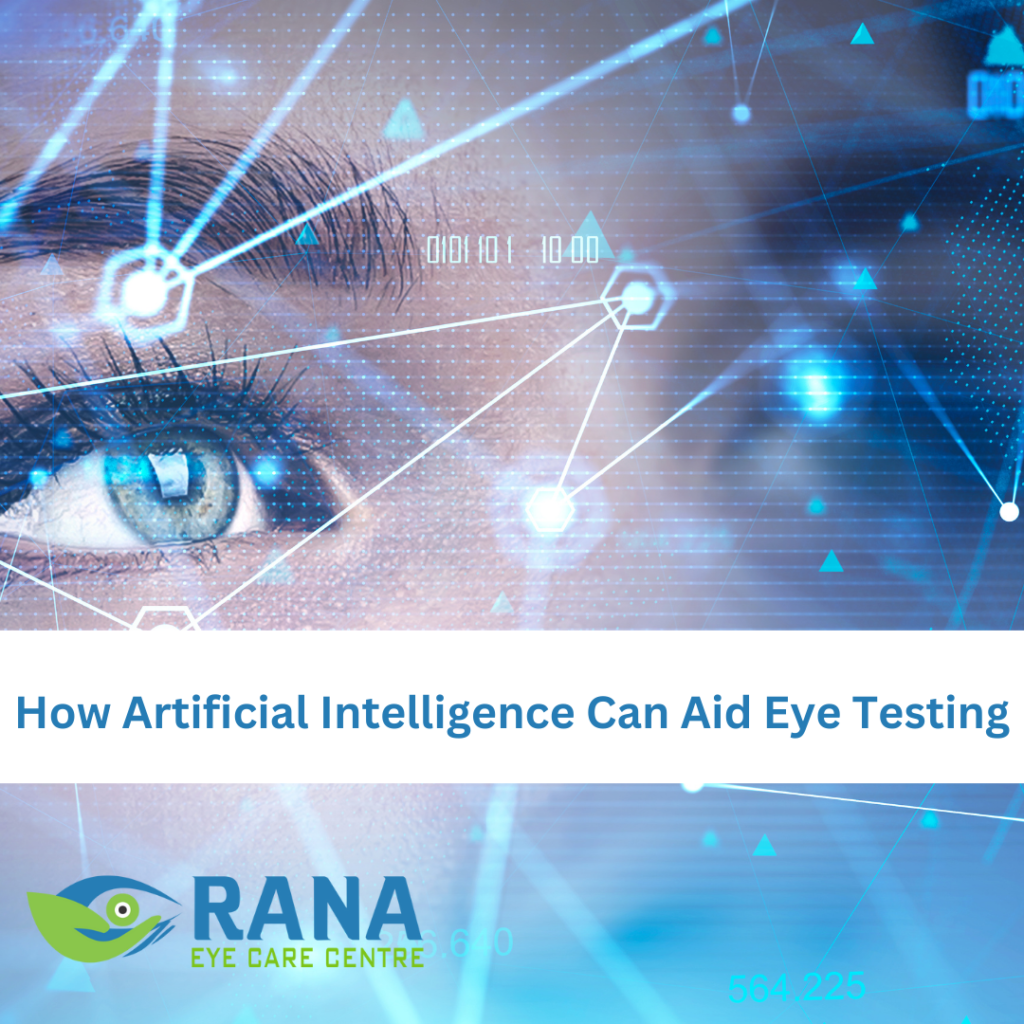How Artificial Intelligence Can Aid Eye Testing
Artificial intelligence (AI) has completely transformed many industries and revolutionised the healthcare sector. AI has shown great potential in many areas, including eye testing. AI can help doctors diagnose and treat eye diseases with its ability to quickly and accurately process and analyze large amounts of data. We discuss vision tests in this article. AI can analyze complex data and patterns, providing more accurate and efficient results for eye testing. This article examines the benefits of AI in ophthalmology and some of its potential uses in eye exams.
Computerized detection
Automating detection processes in eye testing is one of the main benefits of AI. AI algorithms can examine retinal scans and identify eye diseases, including age-related macular degeneration, glaucoma and diabetic retinopathy. AI can significantly save the time and expense of manual detection methods by automating the detection process. Additionally, AI-enabled detection improves accuracy by eliminating human-made errors and inconsistencies.
Early diagnosis and investigation
Early detection is essential for the prevention and treatment of eye disorders. As retina is only organ in body where we can see vessels directly. It provides us window to what is happening in body. AI programs can learn to recognize subtle changes in retinal images that may indicate disease. AI can identify changes in the structure or appearance of the eye by comparing an individual’s retinal scans over time, enabling early diagnosis and management. Early detection can improve the quality of life for people with eye diseases.
Personalized treatment program
AI can help create treatment programs tailored to each patient’s eye disease. AI algorithms can generate personalized medical recommendations by examining a patient’s medical history, genetic information, and lifestyle choices. These considerations may relate to therapy, surgery, lifestyle changes, or assistive technology. This personalized strategy improves patient outcomes and treatment efficiency.
Professional assistance
Ophthalmologists and other vision professionals can benefit from AI in their daily work. AI algorithms can help diagnose complex eye problems, predict disease progression, and recommend treatments by examining patient data. This allows ophthalmologists to make better decisions and treat their patients more effectively. AI can also speed up administrative activities such as organizing medical records, scheduling appointments, and generating custom reports.
Remote monitoring and telemedicine
Artificial intelligence (AI) has an essential role in remote eye examination and monitoring due to the growing reach of telemedicine. AI algorithms can review photos and videos patients have taken at home and provide preliminary assessments. For patients who do not have easy access to traditional eye care centres because they live in underserved or rural areas, this capability enables early detection of changes in eye health. Remote monitoring powered by AI could reduce the need for regular visits to the ophthalmologist, making health care more convenient and affordable.
Conclusion
Artificial intelligence has the potential to revolutionize eye testing by providing automated exams, early diagnosis, personalized treatment planning and support for eyecare professionals. In ophthalmology, AI can dramatically increase the accuracy and efficiency of eye exam procedures, improving patient outcomes. It is essential to ensure that AI is used ethically and that a balance between technology and human skills is maintained throughout its development. AI in eye testing has the potential to completely transform the discipline of ophthalmology and advance global eye health with proper application and continued study.






No Comments